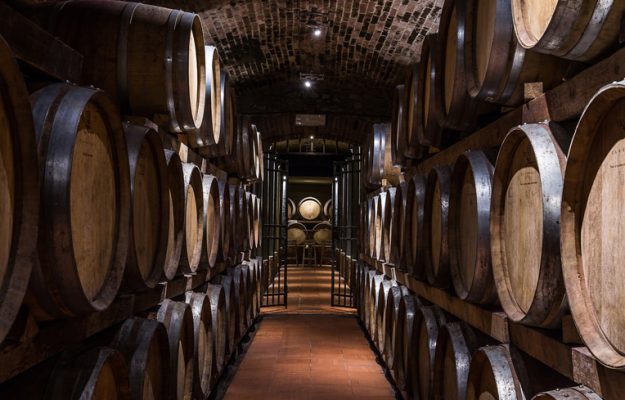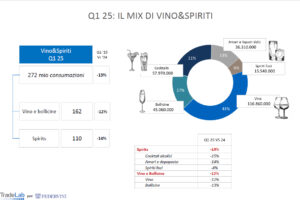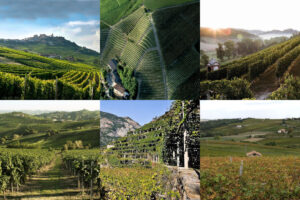For some time, even before Covid, the world of Italian wine and the world of finance had begun to meet with greater intensity. If few wineries are still listed on the stock exchange (Masi and Italian Wine Brands, both on the Aim price list), more are those that see investment funds in their capital, both in majority and minority shares (names such as Zonin 1821 which sees as a minority shareholder the 21 Invest of Alessandro Benetton, or Farnese Vini, led by Valentino Sciotti, now controlled by the USA Platinum fund, or even the Masi, which sees as a new minority shareholder the Red Cirlce Investment of Diesel owner Renzo Rosso, just to give some examples). Other realities, even important ones, have issued minibonds in recent years (from Tenute Piccini to Tenute Velenosi, from Tasca d’Almerita to Cantina Offida), others, such as Collina dei Ciliegi, producer of Amarone della Valpolicella, are experimenting with “en primeur” sales. And there is no lack of credit lines of banks and credit institutions that see as a guarantee the large bottles of wine, up to instruments that transform liquidity even the warehouse, such as Supply@me, of which we wrote a few days ago. All instruments to access alternative capital, invest and grow, with finance that, because of Covid, even through the more traditional channel of banks, will be increasingly important for the world of wine. Which, meanwhile, between March and May 2020, in Italy alone, lost something like 2 billion euros, “equivalent to 20% of revenues no longer recoverable in 2020”. This is stated by the analysis of wine consumption before and during the lockdown in Italy, presented by Davide Gaeta, associate professor of the Department of Business Economics at the University of Verona (and producer of Amarone della Valpolicella, with the Eleva winery), in the webinar “Banche, fondi e garanzie. Vino, diamogli credito - Mercati in trasformazione ed effetti economico-finanziari sui bilanci delle imprese vitivinicole”, organized by Foragri, in collaboration with L’Informatore Agrario, Vite & Vino and Centro Studi Management DiVino (in partnership with Monte dei Paschi di Siena, Crédit Agricole, Made in Italy Fund, Inseec U. Research Center and Ismea).
This data, presented by Professor Davide Gaeta, comes from the survey conducted with the European Association of Wine Economists (already anticipated by WineNews), led by Jean Marie Cardebat, which investigated consumption in eight countries of the Old Continent (Spain, Belgium, Italy, France, Austria, Germany, Portugal and Switzerland). For Italy, two-thirds of the interviewees (a total of 1,146) declared that they had decreased the consumption of wine in forced confinement; there was an increase in online purchases with a 15.5% share exceeding the wine store channel and direct to the cellar despite the massive delivery organization (chosen by 10.5% and 14.3% of the sample respectively).
For Davide Gaeta, “the analysis of consumption before and during the lockdown highlights the current liquidity crisis of Italian wine companies, to which is added the dramatic difficulty of receipts even referred to horeca channel sales at the end of 2019. We now need urgent economic policy measures to recover growth in consumption. One leverage could be the reduction of a few points of VAT, as well as a new consumer approach. About 70% of the sample involved is sensitive to the purchase of local wine to support the economy and wineries in the area”.
In any case, the loss of 20% of turnover for the Italian wine sector expected by analysts in 2020 will have a significant impact on companies’ balance sheets. According to Luca Castagnetti, director of the DiVino Management Study Centre, who analyzed a sample of 618 companies (all companies in the sector with incomes from 3 million euros and upwards) simulating the performance in 2020, “the projections see the smaller companies in significant loss (Ebit, i.e. operating profit before financial charges and taxes, at -3.6%). A significant drop also for medium-sized companies (Ebit -2.3%), against a stable average over the last three years of +4%; for companies with a turnover of more than 30 million euros, the simulation records a positive Ebit value of 1.1% but against a +5.7% in recent years.
According to Castagnetti, “from the financial point of view, the cancellation of management cash flows will make the need for financial instruments explode, with an increase that for companies from 3 to 10 million euros will be 7 times higher than in the pre-Covid period”. A necessity, that of financial intervention, which according to the analyst will be fundamental to defend the supply chain from excessive downward pressure for grapes and wine and therefore to keep the distribution of value in balance”.
However, it is not enough, according to the study, a spending review that does not demoralize the recovery, support exports through producer groups, develop the online channel, work more with credit institutions and open up to financial markets will be fundamental. A path already underway, and which, in all likelihood, will receive an acceleration due to the pandemic.
Copyright © 2000/2025
Contatti: info@winenews.it
Seguici anche su Twitter: @WineNewsIt
Seguici anche su Facebook: @winenewsit
Questo articolo è tratto dall'archivio di WineNews - Tutti i diritti riservati - Copyright © 2000/2025








































































































































































































